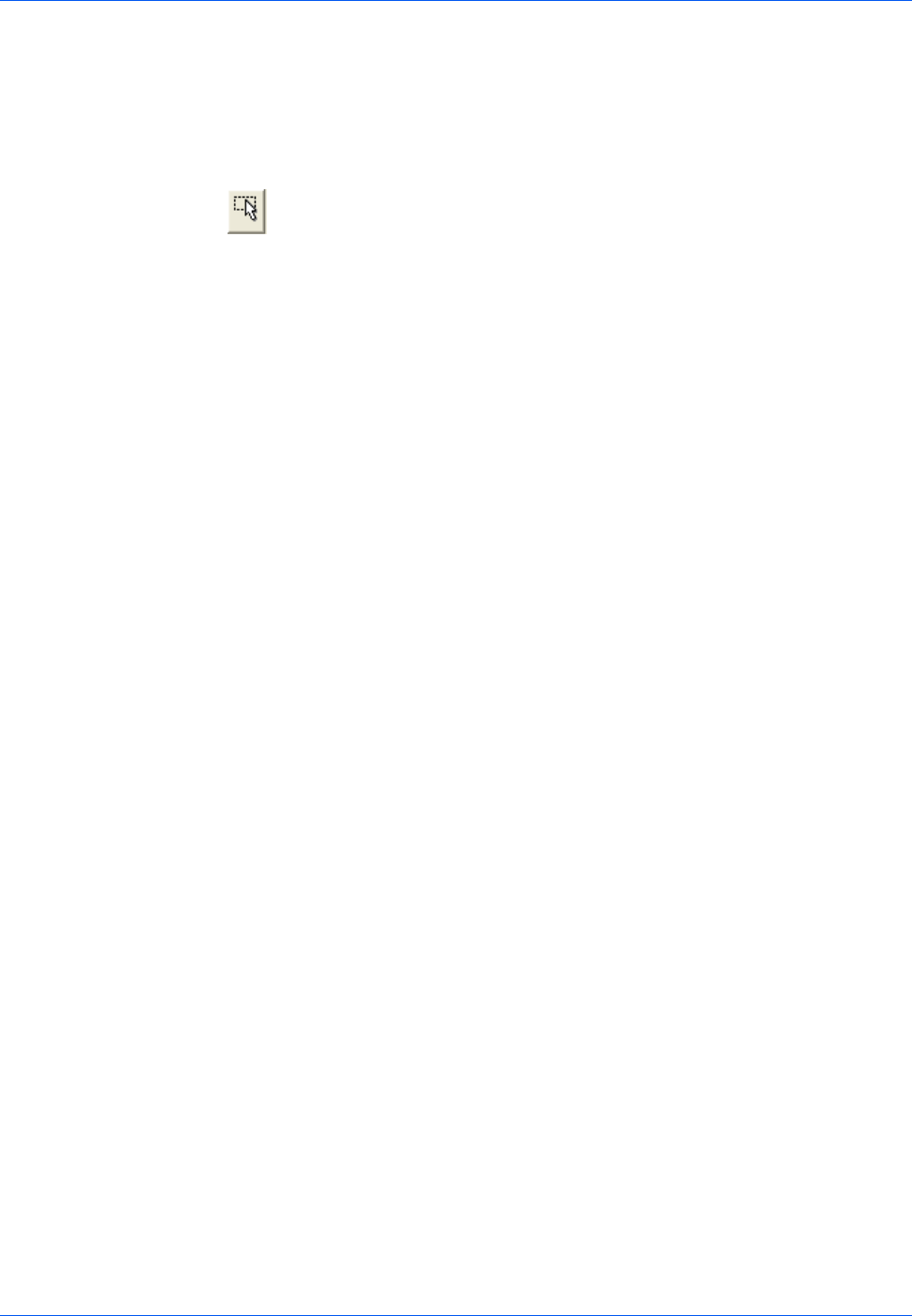
Three ways to scan
4800/2400 Series Installation and User Guide 2-23
3. If the dotted line is not exactly where you want it, put the
pointer on the line and drag the mouse.
For example, if you want the scan to include a border around
the image, you can drag the dotted line to be slightly larger
than the autotrimmed area.
To use the pointer to drag the line, make sure the pointer
button is selected at the top of the window.
4. When the trimmed area is what you want, click [Scan].
To manually set the output size for an item:
1. To scan the entire item on the glass, click [Same as Original].
No sections are trimmed.
2. To set the output size yourself, click [Same as Original] to
remove the checkmark.
The settings for the output size become active.
3. Put the pointer on the image and drag the mouse to enclose
the section you want in the scanned image.
As you drag the mouse, a dotted box appears on the image
and the size settings change to reflect the new output size
area. You can also type in the size settings boxes.
• Width and Height – The measurements of the final image
after it’s scanned; for example, if you plan to print the image
on a typical piece of paper, the width and height are 8.5 and
11.0 inches.
• Units – Units of measurement for the new area; click the
drop-down arrow and choose new units if you want.
• Resolution – The dots-per-inch (dpi) setting for the new
area.
• Scale – The amount of enlargement or reduction of the
image to fill the width and height measurements; for
example, if you select a small area and have set the width
and height to a paper size, the scale automatically increases
to enlarge the small image so it’s the same size as the
paper.
A new Scan Info box on the lower left portion of the Scan
Manager Pro shows the information for the new area.
You can select multiple areas. A new Scan Info box appears
for each one.
The following figure shows an example of a manually selected
area.
NOTE: When you manually select an area, the settings on the
other panels are for the selected area, not the whole image. For
example, the histogram on the resolution panel and the response
curve on the brightness and contrast panel refer to only your newly
selected area.
